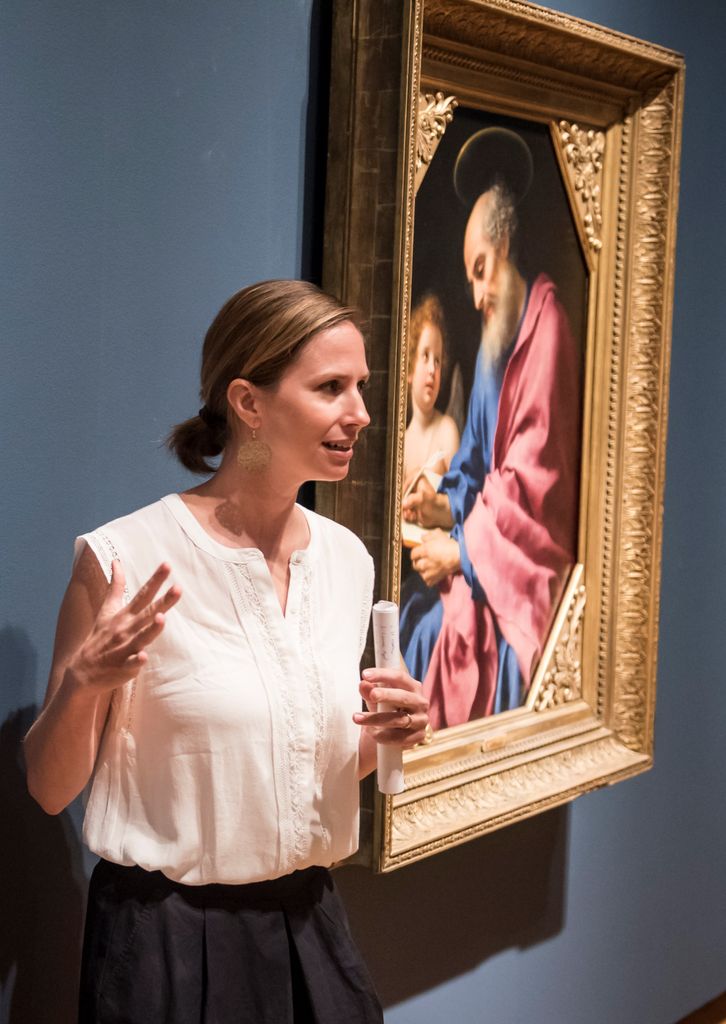Alumni Profile

Nasher Museum of Art at Duke University, 2017. Photo by J Caldwell. ©
Molly Scheu Boarati, GRS 2008
1) What have you been doing since you graduated from BU? Details about your current and past employment? Accomplishments you’re proud of? Challenges you’ve encountered?
I graduated from the department with a Master’s in 2008 and moved to Venice, Italy to reunite with my future husband. We lived there about two and a half years. During that time, I did freelance translations and English lessons, and worked full-time at a commercial gallery. Living in Venice was a dream, especially since my focus in school had been the Italian Renaissance, but legitimate jobs in the arts were few and far between. The gallery was disappointing and I could not put to use the skills I had learned in graduate school. I knew from this experience and past work that my interests lay more with museums than in sales. I began looking for positions back in the southeastern US (I’m from Virginia), and soon joined the Nasher Museum of Art at Duke University in Durham, NC as the Academic Programs Coordinator. This involved working closely with students and faculty to assist them in using the Nasher’s collection and exhibitions in their learning and teaching, across a broad range of subject matter and periods. After three and a half years in this position, I was hired as Assistant Curator at the Nasher, a job I have held for almost four years. The Nasher team is fantastic and I am proud to work with so many talented colleagues. My position consists of curating exhibitions, coordinating curatorial projects with faculty guest-curators, writing, research, and teaching, among other things.
I am proud of the first major contemporary exhibition I curated here, All Matterings of Mind: Transcendent Imagery from the Contemporary Collection, which opened in 2017 while I was on maternity leave. I am also proud of my research on the Old Master works in the permanent collection, which is often tucked away in object files, but is critical to our knowledge of the art we steward, and important for future generations. Part of this work involves provenance research, some of which I hope to share in a future installation at the Nasher.
I am very lucky to be in this position and love what I do. Most challenges I have encountered involved being a foreigner in a very difficult job market. Museum positions in the States can be difficult to land, but that is taken to another level when you live in a country with many qualified nationals where professionals hold onto positions for their entire lives, and not only in the arts. It was a privilege to live in Venice, though, as my time there informed my current interests and art world knowledge, and made me even more determined to establish a satisfying career in the museum field.
2) How your time in the department shaped your professional and personal lives?
I thoroughly enjoyed my time at BU. I liked my small cohort size, the professors, and being in Boston. Some classmates are still very good friends, and it’s been exciting to see where their paths have taken them as well. They are an inspiration. Professor Kleiner’s comments on grammar and punctuation in papers for his Pompeii seminar have stayed with me to this day (you cannot qualify “unique”!). Working with Professor Cranston on my Master’s paper was a true pleasure, and I have enjoyed reconnecting with her recently through her Mapping Paintings project. I think often of the amazing courses I took with Professor Zell and Professor Elia (in the Archaeology Department), and the excitement of giving a paper at the MFA for the GSAHA graduate student conference. The writing and research skills I gained as a graduate student inform my work daily. My brief position as Assistant Director of BUAG gave me practical skills that have come in handy many times. A decade has passed since I graduated, but the people and experiences of BU have always been with me.
3) Any advice that you would’ve given to your younger self?
I would tell my graduate-student self to put the book down and get out and see more of Boston; to go to art openings at museums, galleries, and non-profit spaces, and to network. The art world is big, but it’s actually small, so the connections you make early on are so important. Not to mention the art itself. The more art you can experience in life, the better. Always.
Also, learn German.